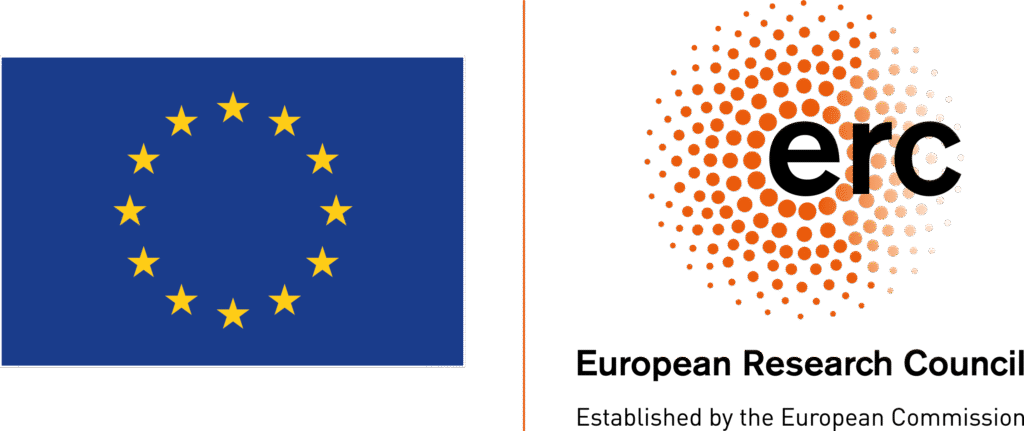Sladky Lab
Research
In the Sladky lab, we are interested in the regulation and consequences of polyploidy. Most cells in the human body are diploid, meaning they contain two copies of each chromosome – one inherited from each parent. In some cases, however, cells undergo whole-genome duplication and acquire additional copies of their entire DNA content, a condition known as polyploidy. Polyploidy is common in plants and certain animals, but in mammals it is more restricted, occurring in specific organs such as the liver and heart and becoming more prevalent with aging and disease.
Polyploidy can change how cells grow or respond to stress, yet its effects on living mammalian tissues are not fully understood. In several tissues, polyploid cells emerge after injury, where they influence regeneration and may contribute to scarring, suggesting that they actively shape their local environment. Why some tissues can accommodate polyploid cells – and what functions these cells serve in healthy organs – remains an open question.
Our research examines where polyploid cells arise, why certain cell types and tissues tolerate extra DNA, and how these cells interact with their surroundings. Using advanced microscopy, flow cytometry, and multi-omics approaches in genetic mouse models and three-dimensional organoid systems, we study how polyploidy influences tissue function in health and disease across different ages and sexes. Ultimately, this work aims to identify new therapeutic opportunities by understanding how polyploid cells contribute to disease processes.
In parallel, we investigate centrosomes across mammalian tissues, with particular attention to polyploid cell types. Centrosomes are small cellular structures that organize microtubules, form the poles of the mitotic spindle during cell division, and serve as templates for cilia formation. Because centrosome number must be tightly regulated to ensure accurate cell division, disruption of centrosome number or integrity can lead to genomic instability and cancer. In addition, centrosomes act as signaling hubs that regulate the proliferation of cells with abnormal centrosome numbers, including polyploid cells.


Current team
PI:
Valentina Sladky
MSc students:
Esra Engin
Sarah Tepfer
We are looking for motivated students for project studies (MUI MolMed) and for students at the bachelor and master level! Currently, we have an open position for joint project with the Bioinformatics department. If you are interested, please reach out to Valentina directly.
Publications
https://pubmed.ncbi.nlm.nih.gov/?term=valentina+sladky&sort=date
Leone M, …, Sladky VC, …Villunger A. The PIDDosome controls cardiomyocyte polyploidization during postnatal heart development. Cell Death and Differentiation, 1-13 2 2026. https://doi.org/10.1038/s41418-025-01645-x
Englmaier L, M Walczak M, … Sladky VC, … Villunger A. tRNA thiolation defects disrupt cellular proteostasis and tissue homeostasis in mammals. bioRxiv, 2025.10. 24.684405. doi: https://doi.org/10.1101/2025.10.24.684405
Eichin F, Sladky VC, … Villunger A. Sequential PIDD1 auto-processing is essential for ploidy control in the liver and heart. bioRxiv, 2025.06. 23.660994. doi: https://doi.org/10.1101/2025.06.23.660994
Sladky VC, Strong MA, Tapias-Gomez D, Jewett CE, Drown CG, Scott PM, Holland AJ. Rapid and sustained degradation of the essential centrosome protein CEP192 in live mice using the AID2 system. Science Advances. 2025 Feb 28;11(9):eadq2339. doi: 10.1126/sciadv.adq2339. Epub 2025 Feb 28. PMID: 40020058; PMCID: PMC11870075.
Lambrecht R, Rudolf F, Ückert AK, Sladky VC, Phan TS, Jansen J, Naim S, Kaufmann T, Keogh A, Kirschnek S, Mangerich A, Stengel F, Leist M, Villunger A, Brunner T. Non-canonical BIM-regulated energy metabolism determines drug-induced liver necrosis. Cell Death and Differentiation. 2024 Jan;31(1):119-131. doi: 10.1038/s41418-023-01245-7. PMID: 38001256
Kim JY, Wang LQ, Sladky VC, Oh TG, Liu J, Trinh K, Eichin F, Downes M, Hosseini M, Jacotot ED, Evans RM, Villunger A, Karin M. PIDDosome-SCAP crosstalk controls high-fructose-diet-dependent transition from simple steatosis to steatohepatitis. Cell Metabolism. 2022 Oct 4;34(10):1548-1560.e6. doi: 10.1016/j.cmet.2022.08.005. PMID: 36041455
Sladky VC*, Akbari H, Tapias-Gomez D, Evans LT, Drown CG, Strong MA, LoMastro GM, Larman T, Holland AJ*. Centriole signaling restricts hepatocyte ploidy to maintain liver integrity. Genes and Development. 2022 Aug 18;36(13-14):843–56. doi: 10.1101/gad.349727.122. PMID: 35981754 *Corresponding authors
Sladky VC, Eichin F, Reiberger T, Villunger A. Polyploidy control in hepatic health and disease. Journal of Hepatology. 2021 Nov;75(5):1177-1191. doi: 10.1016/j.jhep.2021.06.030. PMID: 34228992.
Sheikh TI, Vasli N, Pastore S, Kharizi K, Harripaul R, Fattahi Z, Pande S, Naeem F, Hussain A, Mir A, Islam O, Girisha KM, Irfan M, Ayub M, Schwarzer C, Najmabadi H, Shukla A, Sladky VC, Braun VZ, Garcia-Carpio I, Villunger A, Vincent JB. Biallelic mutations in the death domain of PIDD1 impair caspase-2 activation and are associated with intellectual disability. Translational Psychiatry. 2021 Jan 5;11(1):1. doi: 10.1038/s41398-020-01158-w. PMID: 33414379
Sladky VC, Knapp K, Szabo TG, Braun VZ, Bongiovanni L, van den Bos H, Spierings DC, Westendorp B, Curinha A, Stojakovic T, Scharnagl H, Timelthaler G, Tsuchia K, Pinter M, Semmler G, Foijer F, de Bruin A, Reiberger T, Rohr-Udilova N, Villunger A. PIDDosome-induced p53-dependent ploidy restriction facilitates hepatocarcinogenesis. EMBO Rep. 2020 Dec 3;21(12):e50893. doi: 10.15252/embr.202050893. PMID: 33225610
Sladky VC, Villunger A. Uncovering the PIDDosome and caspase-2 as regulators of organogenesis and cellular differentiation. Cell Death and Differentiation. 2020 Jul;27(7):2037-2047. doi: 10.1038/s41418-020-0556-6. PMID: 32415279
Sladky VC, Knapp K, Soratroi C, Heppke J, Eichin F, Rocamora-Reverte L, Szabo TG, Bongiovanni L, Westendorp B, Moreno E, van Liere EA, Bakker B, Spierings DCJ, Wardenaar R, Pereyra D, Starlinger P, Schultze S, Trauner M, Stojakovic T, Scharnagl H, Fava LL, Foijer F, de Bruin A, Villunger A. E2F-Family Members Engage the PIDDosome to Limit Hepatocyte Ploidy in Liver Development and Regeneration. Dev Cell. 2020 Feb 10;52(3):335-349.e7. doi: 10.1016/j.devcel.2019.12.016. PMID: 31983631.
Rabachini T, Fernandez-Marrero Y, Montani M, Loforese G, Sladky VC He Z, Bachmann D, Wicki S, Villunger A, Stroka D, Kaufmann T. BOK promotes chemical-induced hepatocarcinogenesis in mice. Cell Death and Differentiation. 2018 Mar;25(4):708-720.doi: 10.1038/s41418-017-0008-0. PMID: 29229991
Sladky VC, Schuler F, Fava LL, Villunger A. The resurrection of the PIDDosome – emerging roles in the DNA-damage response and centrosome surveillance. Journal of Cell Science. 2017 Nov 15;130(22):3779-3787. doi: 10.1242/jcs.203448. PMID: 29142064.
Fava LL, Schuler F, Sladky VC, Haschka MD, Soratroi C, Eiterer L, Demetz E, Weiss G, Geley S, Nigg EA, Villunger A. The PIDDosome activates p53 in response to supernumerary centrosomes. Genes and Development. 2017 Jan 1;31(1):34-45. doi: 10.1101/gad.289728.116. PMID: 28130345



